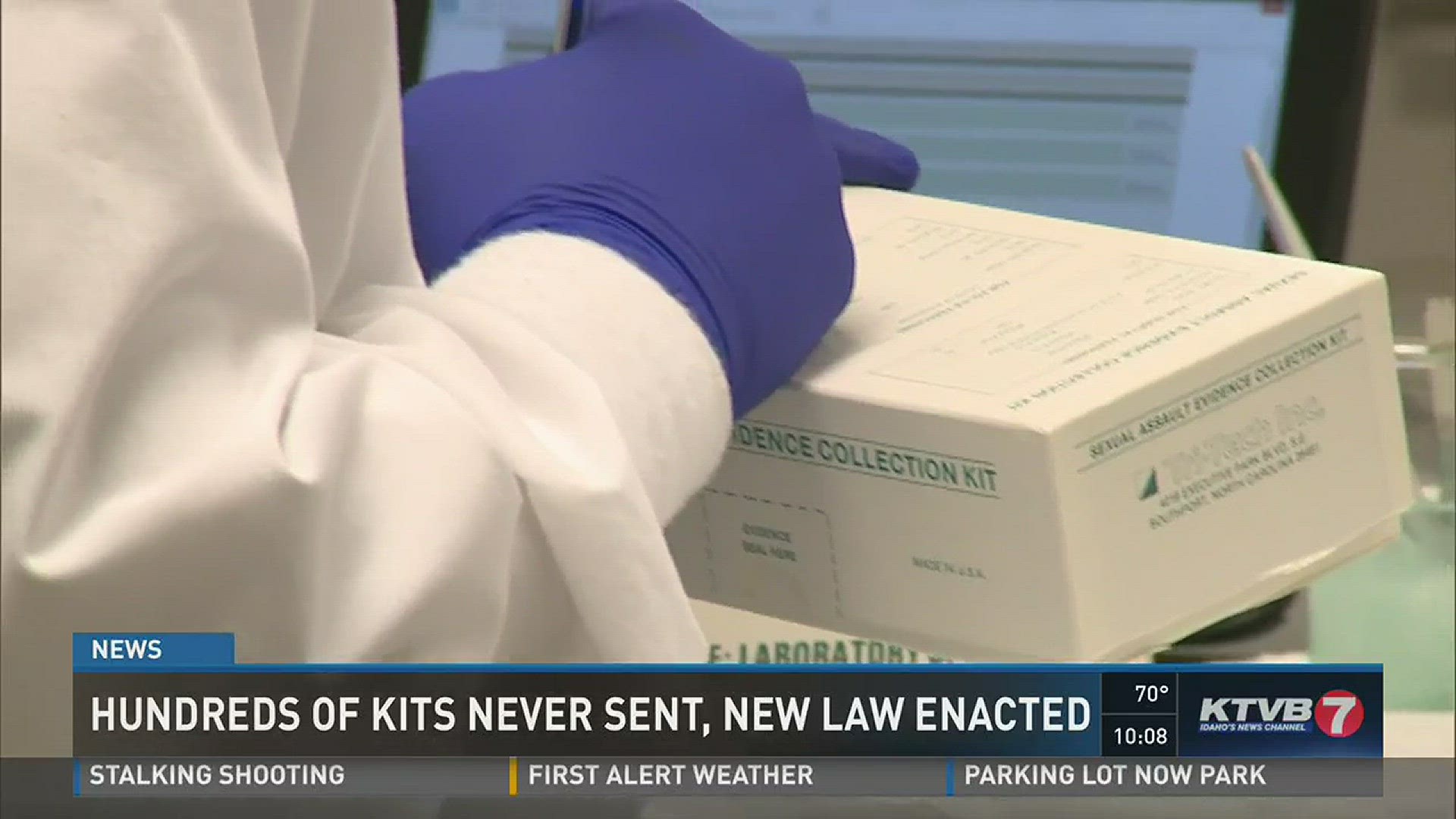BOISE - It's a sensitive and disturbing act that leaves victims feeling violated. Rapes and sexual assaults are usually prosecuted after DNA is collected and tested using a kit.
But, as our 7 Investigates team has been following since last summer - 7 Investigates: Processing rape kits a priority in Idaho - there's been a problem with that process here in Idaho.
Years after the issue was first noticed, hundreds of kits have now finally been tested.
UNTESTED KITS
For a victim of sexual assault, one box could hold the key to locking up the suspect.
"These are very invasive samples for a victim, especially a victim who's just recently been traumatized," said Matthew Gamette, the Idaho State Police lab system director.
But Idaho State Police says years ago they learned many agencies across the state weren't sending in many of the kits for testing.
"It was a problem. It was a problem we hadn't really identified as a communication issue that we needed to address with law enforcement," said Gamette.
Idaho State Police tell us 225 previously unsubmitted kits in Idaho have now been tested by the FBI, with 68 more pending.
In 2014, ISP changed its policy, clarifying exactly which kits should be tested, and asking every law enforcement agency in the state to send in any previously unsubmitted samples that fell under the new regulations.
"There was some miscommunication I believe between us and the state lab over which kits and how many they could take over the last year or so," said Nampa police Sgt Tim Riha.
ISP says 75 of those kits came from Nampa police. The department admits that at the time they were sending in less than 20 percent of the kits they collected.
We asked Sgt. Riha - the department's newly appointed spokesperson - why those samples were never sent in.
"I believe some of them there was no reason to send and some of them there was but i can't speak to that because i don't know the particulars of the cases we are talking about here," he said.
Sgt. Riha says sometimes there is enough evidence to prosecute a suspect without testing the kit and other times the victim refuses to submit it.
Over at the Boise Police Department, ISP says 99 kits have now been sent in. BPD tells us that's out of 173 total that had been collected and previously unsubmitted.
We asked Chief Bill Bones the same question - why?
He said it's because the criteria to submit was different.
"That really opened the door for us to be able to go back and look at all the reports for which we were not able to submit tests, we assigned detectives to go back and they looked at every single case, and every single case we were able to submit a test to the ISP state lab we did," said Chief Bones.
Breakdown by Agency:
Ada County Sheriff's Office (shipped 9/30/14): 46
Meridian Police Department (shipped 10/14/14): 30
Idaho Falls Police Department (shipped 11/24/14 & 9/8/15): 32
Boise Police Department (shipped 8/18/15, 9/1/15, 10/20/15, 1/19/16): 99
Jerome City Police Department (shipped 10/20/15): 4
Twin Falls Police Department (shipped 3/3/16): 7
Nampa Police Department (shipped 4/12/16): 75
Idaho State Police says there was another reason some kits weren't sent in.
Gamette says in many cases investigators knew who the suspect was, so they didn't think it was necessary to submit the kit... but he says even those tests are crucial to the DNA database in connecting suspects to other crimes.
"We'll give the victims more comfort that the kits that are being collected in Idaho are being taken seriously by law enforcement," said Gamette.
NEW LAW TO STRENGTHEN PROCESS
Now, ISP is preparing for the new law that goes into effect this summer, that further strengthens the entire testing process.
"The kit tracking will definitely change, before this point what we did is we would send the kits out to the clinics, the hospitals and we really didn't have a serial number or anything else that we were tracking those kits through the process," said Gamette.
Not only will ISP and local agencies improve how they track the kits using bar codes, the law includes funding to essentially double the number of staff testing the samples.
They plan to add two more DNA scientists, and a forensic analyst specialist to develop the software to electronically and easily process every kit.
More lab employees mean better turnaround time for results, from 90 days down to around 30.
"It's certainly helps investigators focus their investigation much more quickly and it certainly helps us deal with the victims in these types of incidents in a much more effective way and hopefully reduce some of the trauma that goes with these cases," said Tracy Basterrechea with Meridian police.
Another change the new law will bring is that investigators must get a prosecutors approval if a kit is not submitted.
Most agencies say the new law won't change their current procedures much, but admit the overhaul has improved the process for everyone involved, including the victims.
"The biggest change is that it's improved communication within the department and between the prosecuting attorney's office, the state lab, our detective division, our evidence, we've already seen the improved communication, more kits are going to be sent for testing," said Sgt. Riha.
As for the DNA database in Idaho, ISP says there were less than 4,000 convicted offender samples just six years ago and now there are more than 35,000.
As for the cost of the kits, they say each is about $12. Processing the kit depends on the number of DNA samples collected, but ISP says screening and DNA analysis is estimated at $3,000 per kit.

